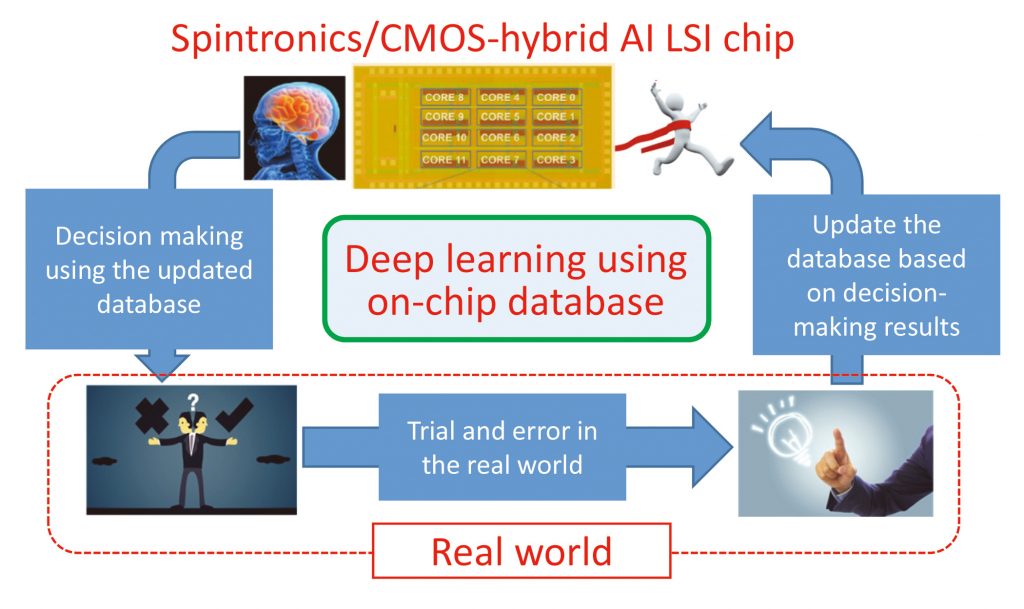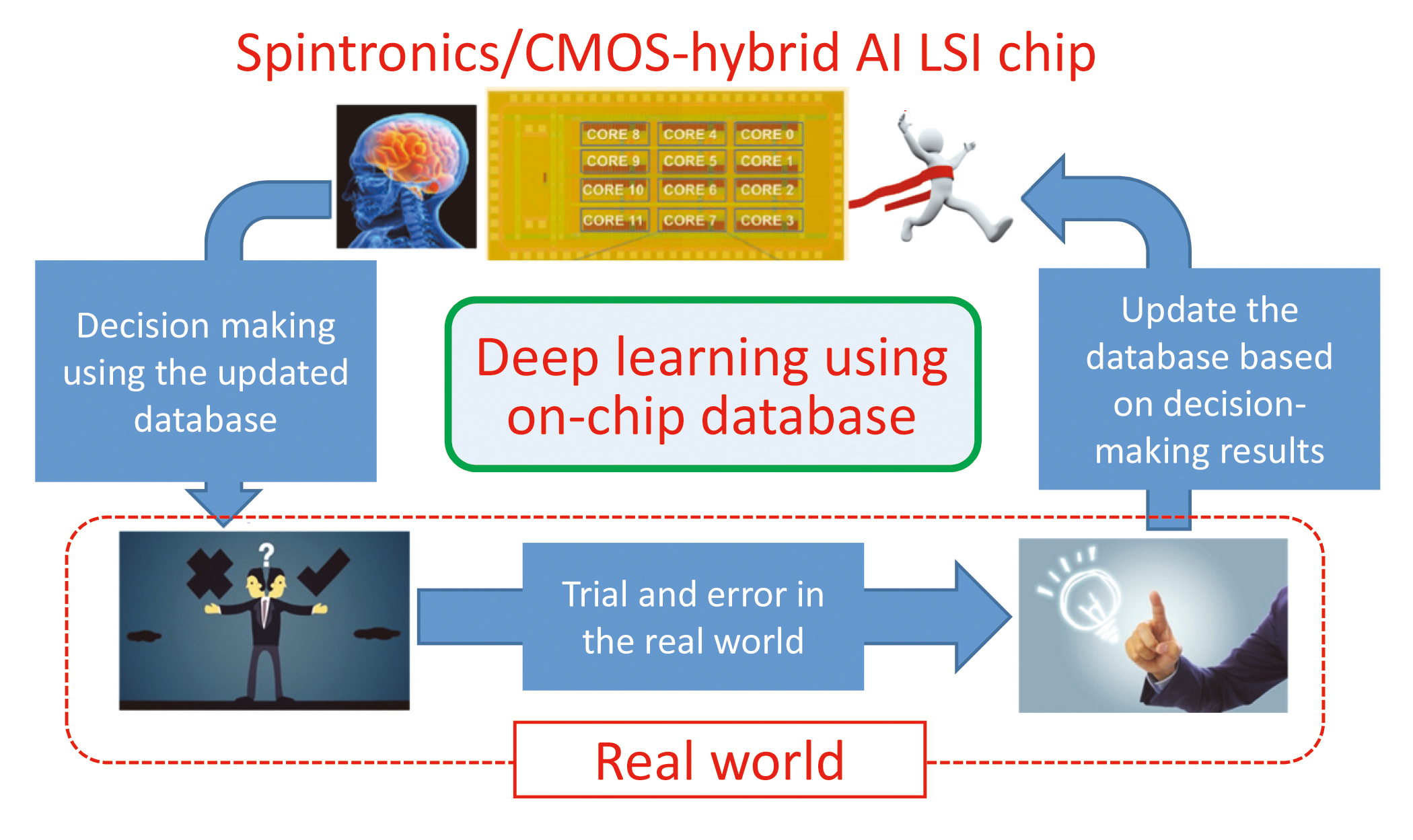- >> Research Center for 21st Century Information Technology(IT-21 Center)
-
Interdisciplinary Collaboration Research Division Research project of human value estimation of multimodal information based on informatics paradigm to manage both

Researcher
- [ Project Leader, Professor* ] Takahiro Hanyu
- [ Professor* ] Tetsuo Endoh
- [ Assistant Professor* ] Li Tao
Research Activities
Fundamental research on electronics that has supported the Third Industrial Revolution has the goal of accumulating more information, accessing more information, and performing calculations with higher speed and lower power consumption. A lot of resources have been allocated to the creation of the basic technology that realizes the expansion of the amount of computation, and the linear model has been successfully developed. However, in the 21st century, toward the realization of the Fourth Industrial Revolution and Society 5.0, new social demands that are difficult to achieve with the existing linear model of quantity-to-quality conversion in the information communication field are emerging. In response to this social demand, basic technology research such as big data analysis and AI diagnosis that supports so-called cyberspace that moves large-scale software on supercomputers and servers proceeds, and language translation, disaster prediction, long-term weather prediction, etc. Although practical application technology is limited, it is beginning to be socially implemented. While this hardware remains an existing Von-Neumann-type computing technology, the approach of implementing necessary functions such as deep learning on the software layer is very energy-efficient per operation. Therefore, in the physical space that constitutes our real world, adaptation of the above approach is difficult due to its power sharing limitation.
Realizing the transformation of information from the amount of information in physical space leading the field of hardware engineering that can execute advanced information processing and judgment innovatively, efficiently, and with low power consumption like human beings, and greatly develop in order to contributes, we have promoted the research project field of “spintronics/CMOS-hybrid brain-inspired integrated system.”
The main achievement in the FY2021 include: the measurement and performance evaluation of designed non-volatile adaptive K-means unsupervised learning processor which can realize real-time learning and recognition of large-scale image data; the design and fabrication of nonvolatile object recognition processor based on light-weighted full convolutional neural networks. These research results achieve 2 academic journal papers, 1 refereed conference papers, 11 invited talks, and 2 patent applications. And 2 patents are being submitted.


